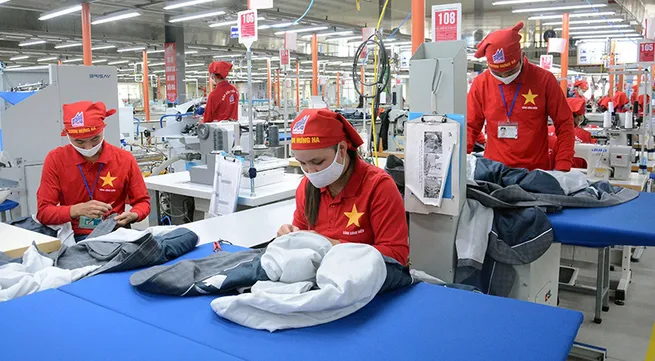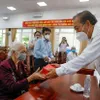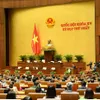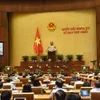Fighting the pandemic without hurting economic growth

The issue has been highlighted in reports on Vietnam’s economic performance in the first half of 2021 and outlook in the remainder of the year released by research institutes.
Imminent risk of supply chain disruptions
According to a recent report by the Vietnam Institute for Economic and Policy Research (VEPR), the Vietnamese economy recorded decent growth in the second quarter and the first six months of the year thanks to the Government’s effective control of the pandemic since the end of the first quarter, which has helped maintain domestic economic activity.
One of the drivers of growth was export as enterprises were able to take advantage of recovery opportunities as EU countries began to reopen. In addition, a stable macroeconomic environment, low inflation and the relocation of foreign investment to Vietnam were also favourable factors in the Vietnamese economy’s growth.
Director of the Central Institute of Economic Management (CIEM) Tran Thi Hong Minh said a bright spot in the economic picture of the first six months was the shaping of the economic institution reform mindset. The new Government was still aiming for the dual goal but was more receptive to new proposals such as allowing factories in industrial parks to continue operating as long as pandemic measures are put in place and allowing enterprises to proactively procure vaccines.
However, all reports share an assessment that the difficulties of the latest outbreak have yet to be reflected in the socio-economic situation of the first six months, and that the risk of disruptions to supply chains is imminent. The VEPR said the virus resurgence since the end of the second quarter has disrupted manufacturing in some key economic zones.
The Purchasing Managers' Index in the second quarter was 44.1, indicating a large contraction in the manufacturing sector. Enterprises were further hit by sharp rises in the costs of manufacturing. Specifically, the prices of non-fuel goods jumped by 38.25%, land lease in industrial parks rose by 8.1% and international shipping costs surged by 4-8 times depending on the routes. The production and circulation of goods continued to face difficulties. The number of enterprises forced to close temporarily and file for bankruptcy increased by 26%.
Overall pandemic fighting plan needed
As the COVID-19 pandemic is projected to continue exerting adverse and unpredictable impacts on the economy, economic experts have stated that it is necessary to find the neutral point of the dual goal. That is the priority is given to fighting against the pandemic and protecting public health but at the time supply chains must not be disrupted.
Nguyen Duc Kien, an economic advisor to the Prime Minister, acknowledged that it is now very difficult to attain the dual goal of virus containment and economic growth, noting that with the scientific knowledge on fighting the pandemic issued by the Ministry of Health, the authorities must adopt the policies that reserve the difficult parts to their side and facilitate enterprises and the people. This is the Prime Minister’s main guiding principle in the latest outbreak.
Associate Professor Pham The Anh at the National Economics University said that the fact that some provincial governments are requesting incoming residents from other provinces to show a negative test certificate even when they have been given two COVID-19 vaccine shots lies at the extreme end of the pandemic containment strategy. The most important thing now is constructing various scenarios of a possible worsening situation so that Vietnam can have a national unified strategy to minimise the pandemic’s impacts on economic activity.
The economic outlook in the final months of 2021 depends on three factors: the rate of vaccination, the effect and side-effects of virus containment measures and support and stimulus packages. Problems related to infections within quarantine facilities, health declarations and disrupted supply chains due to extreme measures and the shortage of medical equipment must be resolved quickly.
Experts at the BIDV Training and Research Institute suggested that the Government should design a dedicated support package for small and medium-sized enterprises that have been directly hit by the pandemic. Its size should be around VND50 trillion (US$2.2 billion), with interest rates at 4-5% per year.
The best support remains the Government’s persistence with the dual goal, in which curbing the pandemic and vaccination are the foremost measures while flexibility is needed to avoid economic paralysis brought about by the recent closure policies of some localities.





